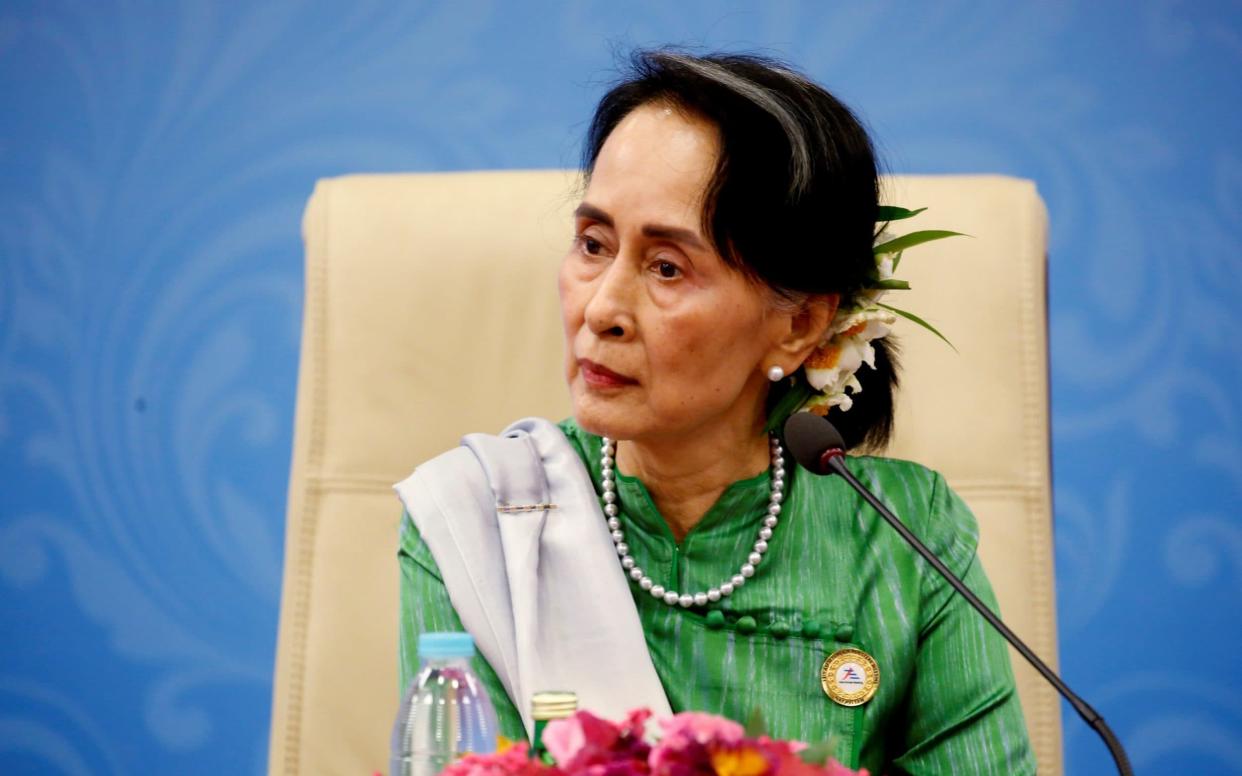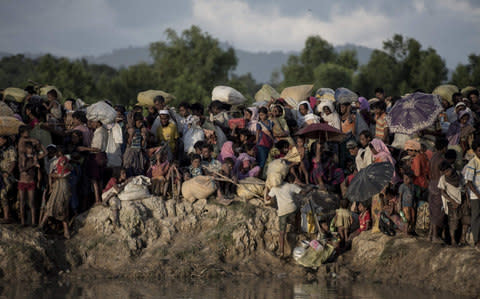Aung San Suu Kyi signs agreement to take Rohingya back after atrocities

Burma and Bangladesh signed an accord on Thursday over terms for the return of hundreds of thousands of Rohingya Muslims who have fled to Bangladesh, a government official said, amid concern that Burma’s powerful army could prove obstructive.
Rights groups have accused the military in mostly Buddhist Burma of carrying out mass rape and other atrocities during a counter-insurgency operation launched in late August in retaliation for attacks by Rohingya militants in Rakhine State.
On Wednesday, the United States said the military operation that drove 620,000 Rohingya to seek sanctuary in neighboring, largely Muslim Bangladesh, amounted to “ethnic cleansing”, echoing an accusation first leveled by top UN officials in the early days of the humanitarian crisis.
Burma - also known as Myanmar - is seeking to ease international pressure by striking an initial agreement on returns, while Dhaka wants to ensure overstretched refugee camps that have mushroomed in the Cox’s Bazar region don’t become permanent.

“We are ready to take them back as soon as possible after Bangladesh sends the forms back to us,” Myint Kyaing, a permanent secretary at Burma’s ministry of labor, immigration and population, told Reuters, referring to forms the Rohingya must complete with personal details before repatriation.
The signing took place after a meeting between Burma’s civilian leader Aung San Suu Kyi and Bangladesh foreign minister Abul Hassan Mahmood Ali in Naypyitaw.
Mr Kyaing said that the memorandum of understanding was based on the 1992-1993 repatriation agreement between the two countries which had been inked following a previous spasm of violence in Burma.
The forms that the refugees will have to fill include names of family members, their previous address in Burma, date of birth and a disclaimer that they are returning voluntarily, he added.
He said that based on the 1992-1993 agreement, Burma would accept those who could present identification documents issued to the Rohingya by Burma governments in the past.
Those include the currently distributed national verification cards, as well as now-withdrawn “white cards”, as well as receipts the Rohingya received when returning their “white cards”, he said.
Diplomats and aid workers have said the key elements of the deal will be the criteria of return and the participation of the international community, such as the United Nations refugee agency, in the process.
Other important points include safeguards for the Rohingya against further violence, a path to resolving their legal status and whether they would be allowed to return to their own homes and farms.
Mr Kyaing declined to elaborate on those points.
Speaking at a military event in Dhaka, Bangladeshi Prime Minister Sheikh Hasina said she was calling on Burma ”to start taking back soon their nationals from Bangladesh.”

